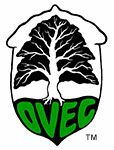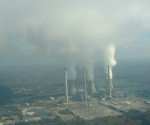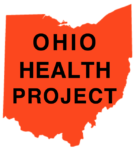- Like
- Digg
- Del
- Tumblr
- VKontakte
- Buffer
- Love This
- Odnoklassniki
- Meneame
- Blogger
- Amazon
- Yahoo Mail
- Gmail
- AOL
- Newsvine
- HackerNews
- Evernote
- MySpace
- Mail.ru
- Viadeo
- Line
- Comments
- Yummly
- SMS
- Viber
- Telegram
- Subscribe
- Skype
- Facebook Messenger
- Kakao
- LiveJournal
- Yammer
- Edgar
- Fintel
- Mix
- Instapaper
- Copy Link
 A few months ago, Columbia Gas sent a project update to the Upshur County Commission regarding a pipeline upgrade and expansion project for a pipeline called the WB XPress, which would affect eight counties in West Virginia. The project would add new pipe and increase operating pressure at the four existing compressor stations in WV, and add one new station in Kanawha County.
A few months ago, Columbia Gas sent a project update to the Upshur County Commission regarding a pipeline upgrade and expansion project for a pipeline called the WB XPress, which would affect eight counties in West Virginia. The project would add new pipe and increase operating pressure at the four existing compressor stations in WV, and add one new station in Kanawha County.
Regarding this project expansion, the Mountain Lakes Preservation Alliance sent the following comment to the commission, asking that the comment be included in the agenda notes for this week’s meeting:
The WB is an interstate pipeline that will carry gas in 36” pipelines over steep, WV terrain. According to the company’s website, it will add 26 miles of replacement pipe in WV and a new compressor station in Kanawha County, with updates to existing compressor stations in Braxton, Upshur, Randolph, Pendleton, and Hardy counties in WV, as well as one new and two updated compressor stations in VA.
Columbia’s correspondence to the Upshur County Commission last week states the project will affect water resources, including Seneca Creek. Seneca Creek lies within the Chesapeake Bay Watershed, in the Spruce Knob-Seneca Rocks National Recreation Area of the Monongahela National Forest. This water has its source in Pendleton County and winds through the communities of Onego, Seneca Rocks, and Teterton. It feeds the Potomac and runs through Monogahela National Forest. This water eventually finds its way into Washington, DC, and the Chesapeake Bay.
The WB line is only one of seven interstate pipelines proposed for WV. Several government, environmental and scientific entities have stated that the construction of gas pipelines will create a heavy burden on water resources, stream ecosystems, traffic and infrastructure, and public health.
We believe that, in the long-term, any investment in natural gas pipeline infrastructure is not advisable, as the energy landscape is changing rapidly toward renewables and energy efficiency. Moreover, there is doubt as to the financial security of the industry in general, as many companies are leveraged, but continue to press gas development to appear solvent to their investors when they are not. Such companies are often self-insured, which leaves communities with the burden of rebuilding in case of a catastrophic failure. Pipeline and related infrastructure failures and accidents are occurring with more and more frequency as well.
The Stonewall Gathering Line is currently under scrutiny by the WV DEP for violations of erosion and sediment control measures leading to water contamination, and has been experiencing problems with slippage on segments that have been recently covered. We believe that any infrastructure placed on hillsides with a pitch of 45 degrees or more is going to present both short and long-term problems.
In addition, the air pollution from compressor stations is well documented, and even the estimates of companies are just that: estimates. The actual figures of emissions of such compounds as nitrogen oxides, carbon monoxide, volatile organic compounds and greenhouse gases may be much higher than projected by the companies under pressure to comply with federal and state-mandated limits. Furthermore, the DEP does not consider these emissions in aggregate, even though there are dozens of compressors planned, and the collective values of these contaminants is not considered. These compounds will affect the public health for people living in proximity. Moreover, there have been several explosions at compressor stations documented, most recently in Encinal, Texas and Gibson, Louisiana.
We are also concerned that the local infrastructure is outdated and will not be able to handle the influx in traffic for the construction phase of these pipeline projects. Last week, a broken electric line fell from a power pole and set two cars on fire at the campus of WVWC. Rural bridges and roads under assault from heavy construction equipment will fail unless ongoing upkeep is funded. We believe these updates must be funded by the companies themselves, not the taxpayers.
Diesel exhaust and fumes from the trucks that will come and go will provide a flow of microfine particulates that are shown to be cancer-causing. Several communities are suffering from health problems related to this activity. We do not believe the mechanisms are in place to ensure the safety of the public from these hazards.
We remind the commission that new gas infrastructure will feed the drilling frenzy in this area. Several hundred permits in both Upshur and Lewis Counties, as yet undeveloped, will be developed. It is well established that horizontal drilling, as currently performed, is hazardous to water and public health. Large amounts of water is being withdrawn for drilling from WV waterways without payment. Accidental or intentional spills are implicated in several incidents of water contamination. Evidence is surfacing in SW PA showing very high levels of radioactivity in TenMile Creek, and water treatment plants are not equipped to handle bromides and radionuclides that are present in frack waste water. This will continue to be a public health hazard.
Spills have been reported in WV from intentional discharge, unintentional spillage due to faulty equipment, and toxic materials migrating upward into surface water from injection wells. A case in point is Wolf Creek in Lochgelly, WV, in Fayette County. Waste products from horizontal drilling create hundreds of thousands of tons of solid and millions of gallons of liquid waste per year. WV does not currently have an industrial landfill in place in this state, and municipal landfills are taking this waste into special “cells” which are ill-equipped to handle this waste in the long-term. We are injecting waste water into the ground, causing or increasing earthquakes in areas that have never had to deal with them in such volume. Youngstown, OH and Oklahoma are two recent examples.
We realize that county commissions have limited power, but there are things that they can do to protect the local population from health hazards, as well as protect the land from new and hazardous infrastructure. Since federal law exempts oil and gas from many environmental regulations designed to protect the public, it is up to local governments to protect their communities with ordinances and resolutions. In the following weeks and months, Mountain Lakes Preservation Alliance will be submitting more information about these issues, and eventually hopes to submit a draft resolution for consideration by the Commission.
In the meantime, citizens can write to the Federal Energy Regulatory Commission, using docket number PF15-21 in their correspondence, either online or via snail mail, with their concerns over this project. There will be two more public comment periods before this line is approved.
Regards,
April Keating,
Chair, Mountain Lakes Preservation Alliance










